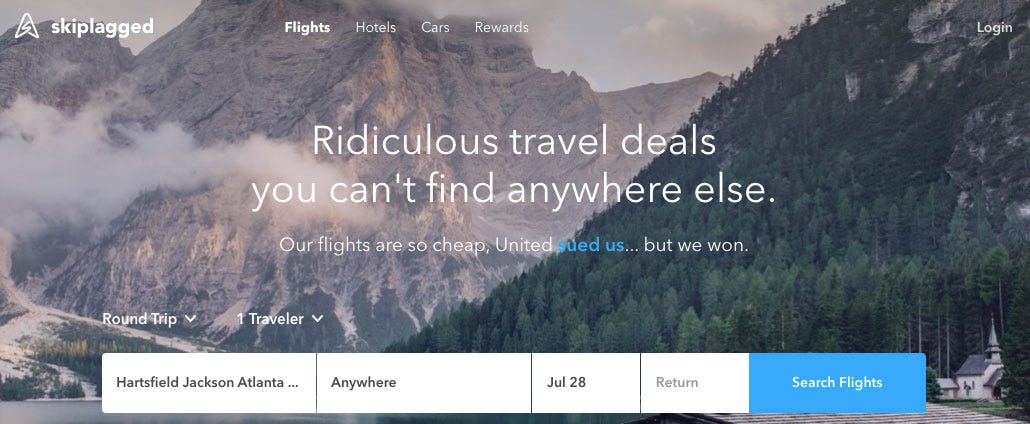Flying Into a Hidden City
What is skiplagging? Is it worth it?
My real estate agent had become overwhelmed with the sale of my last rental property. The market was hot, and the condo’s repair list was growing… plumbing, painting, cleaning, German cockroaches. (ewwww!) She didn’t have time to oversee the repairs, so I considered booking a flight to Atlanta to help her out.
It was during this search that I was reintroduced to skiplagging or “hidden city” flights. If you have ever tried to book a last minute flight, you know the rates can be high.
Skiplagging is the practice of booking a flight where the stopover is the intended destination of the traveler. The passenger skips the connection and remain in the stopover city.
Note: I am not here to promote or judge skiplagging. I am only giving an example.
Booking a one-way ticket on Delta Airlines from Puerto Vallarta to Atlanta with 48 hours notice would cost $984.90. However, if a flight was booked to Austin, Texas with a layover in Atlanta, the cost would be significantly less expensive. It was only $206.40… a savings of $778.50… almost 80% off.
Several people I mentioned this to did not believe it was possible, so here are the “receipts.”
While skiplagging may seem like the ultimate travel hack, you should know that it is prohibited in the terms of service for most airline, including Delta Airlines.
While not an exclusive list, the following ticketing practices are prohibited:
Back-to-back ticketing - combining multiple overlapping round-trip tickets to circumvent Saturday or other overnight stay requirements
Throw-away ticketing - use of discounted round-trip excursion fares for one-way travel
Point-beyond ticketing - use of a fare published for travel to a point beyond your actual intended destination or from a point before your actual intended origin
The airline’s website goes on to outline the penalty if you’re caught.
Failure to comply with applicable fare restrictions, circumventing those restrictions, or misrepresenting your intended itinerary are all violations of our Contract of Carriage. Violation of this contract reserves us the right to:
Cancel the remainder of the itinerary and confiscate any unused flight coupons.
Refuse to board the passenger or check baggage.
Charge the passenger for the difference between the fare paid and the fare for the passenger's traveled itinerary.
Other airlines have taken it a step further, with Lufthansa suing a passenger (The case was thrown out of court in 2018.) and American Airlines billing a passenger for $2,500 after they discovered 52 hidden city flights had been booked.
Prior to these cases, United Airlines and Orbitz had filed a lawsuit against Aktarer Zaman, founder of Skiplagged.com. The lawsuit was thrown out of a Chicago court stating they didn't have jurisdiction over the case. The website doesn’t seemed to be phased by the lawsuit, proclaiming on their homepage, “Our flights are so cheap, United sued us... but we won.”
The bottom line. Skiplagging is not illegal. However, it is against the terms of service for most airlines. In the end, it is up to the passenger to decide if the practice is worth jeopardizing their relationship with the airline.
Is skiplagging the ultimate travel hack? No.
Would I consider doing it in the future? Possibly.
Would I do it regularly? As a frequent traveler, absolutely not.
Even if I never book a hidden city flight, my research led me to rediscover Skiplagged.com. I will continue to use the website for flight options. I prefer it over Google Flights or Skyscanner for specific travel dates. Skiplagged.com presents many options that the other sites missed.




